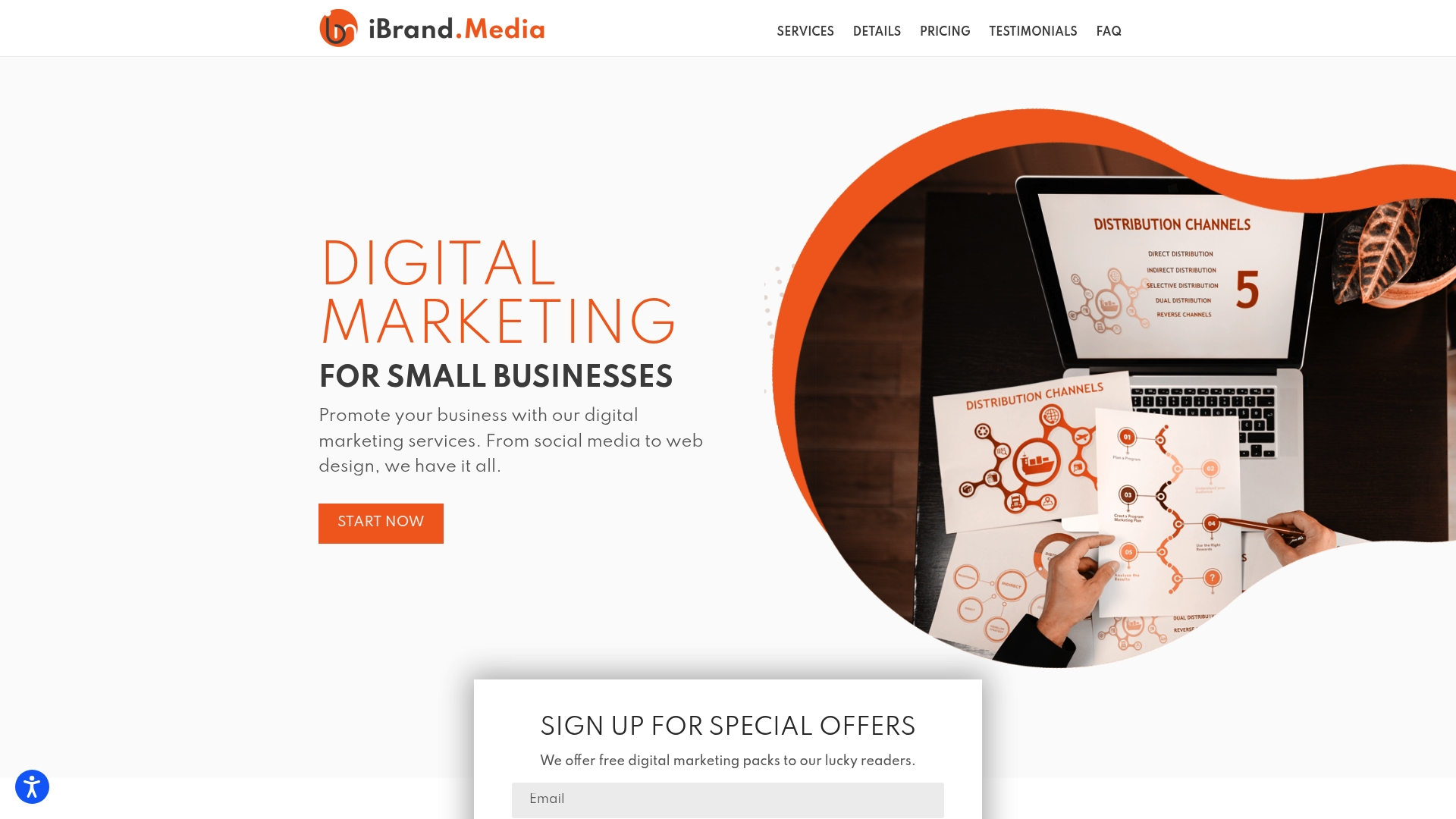Content marketing has become the secret weapon for small businesses trying to win customer trust. Some experts say that 87 percent of consumers read online reviews for local businesses before making decisions, which sounds massive. Most people expect content marketing to be all about relentless product pitches but the real power lies in building loyalty through stories and helpful information your audience actually wants.
Table of Contents
- What Is Content Marketing And How Does It Function?
- The Importance Of Content Marketing For Local Businesses
- Understanding The Psychology Behind Content Marketing Success
- How Quality Content Drives Engagement And Loyalty
- Key Strategies That Showcase Why Content Marketing Works
Quick Summary
| Takeaway | Explanation |
|---|---|
| Content marketing builds trust and relationships | It offers valuable, informative material that addresses audience challenges, rather than direct promotions. |
| Engaging local audiences is key | Targeted content specifically resonates with local customer needs and interests, enhancing community connection. |
| Emotional storytelling enhances connection | Content that evokes empathy and relates to audience struggles can significantly influence their perceptions and actions. |
| Quality content increases customer loyalty | Businesses providing high-value, relevant content foster deeper emotional bonds, transforming one-time customers into loyal supporters. |
| Regular measurement optimizes content effectiveness | Continuously analyzing content performance helps refine strategies, ensuring the material remains relevant and engaging for the audience. |
What is Content Marketing and How Does It Function?
Content marketing is a strategic approach focused on creating and distributing valuable, relevant, and consistent content to attract and retain a clearly defined audience. Unlike traditional advertising that directly promotes products, content marketing builds trust and relationships by providing informative, helpful material that addresses audience needs and challenges.
The Core Purpose of Content Marketing
At its foundation, content marketing works by establishing your business as a knowledgeable resource. By sharing insights, solving problems, and offering useful information, small businesses can demonstrate expertise without aggressive sales tactics. Learn more about content marketing principles to understand how strategic communication can transform your business growth.
Small businesses benefit from content marketing through several key mechanisms:
- Builds credibility and trust with potential customers
- Improves online visibility through search engine optimization
- Creates long-term engagement beyond immediate sales transactions
How Content Marketing Generates Business Value
Effective content marketing operates on a fundamental principle of providing genuine value. According to Content Marketing Institute, this approach helps businesses create meaningful connections by addressing audience pain points directly. This means developing content that answers questions, solves problems, and offers practical insights relevant to your target market.
For small businesses, content marketing transforms communication from a sales pitch into a collaborative dialogue. Instead of interrupting potential customers with traditional advertisements, you invite them to engage with helpful, informative material that demonstrates your understanding of their needs. This approach builds trust, credibility, and authority in your specific business domain.
The Importance of Content Marketing for Local Businesses
Local businesses face unique challenges in attracting and retaining customers in a competitive marketplace. Content marketing emerges as a powerful strategy specifically tailored to address these challenges by creating meaningful connections with the local community and potential customers.
Connecting with Local Audiences
Content marketing allows small businesses to speak directly to their local customer base by creating targeted, relevant content that resonates with specific community needs and interests. Explore the benefits of local marketing to understand how strategic communication can transform your local business presence.
Key advantages for local businesses include:
- Establishing a strong community presence
- Demonstrating local expertise and understanding
- Building trust through authentic, location-specific content
Economic Impact and Customer Engagement
According to BrightLocal’s Local Consumer Review Survey, 87% of consumers read online reviews for local businesses, highlighting the critical role of digital content in attracting customers.
 Content marketing provides an opportunity to showcase your business’s unique value proposition, share customer success stories, and highlight local achievements.
Content marketing provides an opportunity to showcase your business’s unique value proposition, share customer success stories, and highlight local achievements.
For service-based businesses like home contractors, medical professionals, and local retailers, content marketing becomes a powerful tool to differentiate from competitors. By creating informative blog posts, local event coverage, and community-focused content, businesses can transform their marketing from a transactional approach to a relationship-building strategy that connects emotionally with potential customers.

Understanding the Psychology Behind Content Marketing Success
Content marketing transcends simple information delivery by tapping into fundamental psychological principles that drive human decision-making and engagement. Understanding these psychological mechanisms helps small businesses create more compelling and resonant marketing strategies.
Emotional Connection and Trust Building
Psychological research reveals that humans are inherently emotional decision-makers. Explore strategies for creating engaging content to leverage emotional connections in your marketing approach. Content that triggers genuine emotional responses can significantly influence audience perception and behavior.
Key psychological triggers in content marketing include:
- Creating narratives that evoke empathy
- Demonstrating vulnerability and authenticity
- Solving audience problems in a relatable manner
Cognitive Mechanisms of Content Engagement
According to research published in the Journal of Consumer Psychology, consumers process information through complex cognitive filters. The brain seeks content that is:
- Familiar yet novel
- Personally relevant
- Easily digestible
Small businesses can capitalize on these cognitive preferences by developing content that feels simultaneously comfortable and interesting. Storytelling becomes a powerful tool, allowing businesses to package information in a format that the human brain naturally processes and remembers. By understanding these psychological principles, entrepreneurs can transform standard marketing messages into compelling narratives that resonate deeply with their target audience.
The following table summarizes the key psychological principles that contribute to the effectiveness of content marketing for small businesses.
| Psychological Principle | How It Enhances Content Marketing | Example From Article |
|---|---|---|
| Emotional Connection | Builds empathy and trust with the audience | Storytelling that evokes audience struggles |
| Authenticity | Increases credibility and relatability | Demonstrating vulnerability in content |
| Cognitive Engagement | Makes content memorable and engaging | Using narratives that are familiar yet novel |
| Relevance | Ensures content is pertinent to target customers | Addressing customer-specific challenges |
| Digestibility | Facilitates easier processing and retention | Presenting actionable and easy-to-read content |
How Quality Content Drives Engagement and Loyalty
Quality content serves as a critical bridge between businesses and their target audience, transforming casual interactions into meaningful relationships. Small businesses can leverage strategic content creation to establish trust, demonstrate expertise, and cultivate long-term customer loyalty.
Building Trust Through Valuable Information
Discover proven strategies to engage customers online and understand how delivering high-value content can differentiate your business. Content that consistently provides genuine solutions and insights becomes a powerful mechanism for building credibility and audience connection.
Key characteristics of engagement-driving content include:
- Addressing specific customer pain points
- Offering actionable and practical advice
- Maintaining consistency and authenticity
Measuring Content’s Impact on Customer Retention
According to research from Old Dominion University, businesses that produce high-quality, relevant content experience significantly higher customer retention rates. This occurs because well-crafted content does more than inform—it creates an emotional connection that transforms transactional relationships into loyal partnerships.
For small businesses, this means developing content that goes beyond surface-level information. By consistently demonstrating deep understanding of customer challenges and providing meaningful solutions, companies can position themselves as trusted advisors rather than mere service providers. The result is a sustainable engagement model where customers view the business as a valuable resource, not just another vendor.
Key Strategies That Showcase Why Content Marketing Works
Content marketing represents a sophisticated approach that goes beyond traditional advertising by creating meaningful connections with potential customers. Strategic implementation becomes crucial for small businesses seeking to maximize their digital marketing effectiveness and stand out in competitive markets.
Strategic Content Development
Explore 8 powerful content ideas for small business growth to understand how targeted content can transform your marketing approach. Successful content marketing requires a deliberate and systematic approach that aligns with specific business objectives and audience needs.
Key strategic elements for effective content marketing include:
- Identifying precise target audience segments
- Creating personalized, value-driven content
- Developing a consistent brand narrative
Measurement and Optimization
According to research from the Journal of Media and Business Studies, successful content marketing strategies are characterized by continuous measurement and refinement. Data-driven insights play a critical role in understanding content performance, allowing businesses to adapt and improve their approaches in real-time.
Small businesses can leverage content marketing by focusing on creating authentic, relevant materials that directly address customer challenges. This means moving beyond generic information to provide specialized knowledge that demonstrates genuine expertise and builds trust. By consistently delivering high-quality, targeted content, businesses transform their marketing from a passive communication tool to an active engagement mechanism that attracts, retains, and converts potential customers.
Here is a table outlining the major strategic elements that small businesses should focus on to apply content marketing successfully.
| Strategic Element | Purpose | How It Drives Results |
|---|---|---|
| Target Audience Segmentation | Identifies precise customer groups to address their needs | Ensures content is highly relevant |
| Personalized Value Content | Delivers specific solutions and benefits to the audience | Builds trust and credibility |
| Consistent Brand Narrative | Maintains unified messaging across all content platforms | Enhances brand recognition and loyalty |
| Continuous Measurement | Regularly analyzes content performance metrics | Refines strategies for better engagement |
| Content Optimization | Adjusts and improves content based on data-driven insights | Keeps material relevant and engaging over time |
Ready to Turn Content Marketing Into Real Growth for Your Small Business?
You have just discovered how strategic content marketing can build trust, spark engagement, and drive loyalty for small businesses. But do you ever feel stuck turning these valuable insights into tangible results for your own company? Many business owners face the challenge of crafting high-quality content and converting their unique expertise into consistent online growth. If you want to see the proven impact of content marketing in action and get ahead of your competitors, you are not alone. Explore practical strategies and solutions on our Uncategorized | Ibrandmedia page and see how other businesses have transformed their digital presence.

Take the first step with ibrand.media today. Schedule your free consultation and unlock a tailored plan designed for small business success. When you act now, you benefit from a team that specializes in affordable, results-driven strategies built on the principles you have just learned. Access your custom solution and watch your business grow faster than ever before.
Frequently Asked Questions
What is content marketing?
Content marketing is a strategic approach that focuses on creating and distributing valuable, relevant content to attract and retain a clearly defined audience. Unlike traditional advertising, it builds trust and relationships by addressing the needs and challenges of the audience.
How can content marketing work for small businesses?
Content marketing helps small businesses build credibility, improve online visibility, and create long-term engagement by providing informative content that resonates with their target audience and addresses their pain points.
Why is emotional connection important in content marketing?
Emotional connection is crucial in content marketing because humans are emotional decision-makers. Content that evokes empathy and demonstrates authenticity can significantly influence audience engagement and loyalty.
What are some key strategies for effective content marketing?
Key strategies include identifying precise target audience segments, creating personalized and value-driven content, maintaining a consistent brand narrative, and continuously measuring and optimizing content performance.
Recommended
- Content Marketing Explained: Understanding Its Core Principles | Ibrandmedia
- 8 Content Ideas for Small Business Growth | Ibrandmedia
- Social Media Marketing for Businesses: Strategies That Work in 2025 | Ibrandmedia
- Why Is Social Media Important for Small Businesses in 2025? | Ibrandmedia
- What is Content Marketing? Understanding Its Importance

Recent Comments